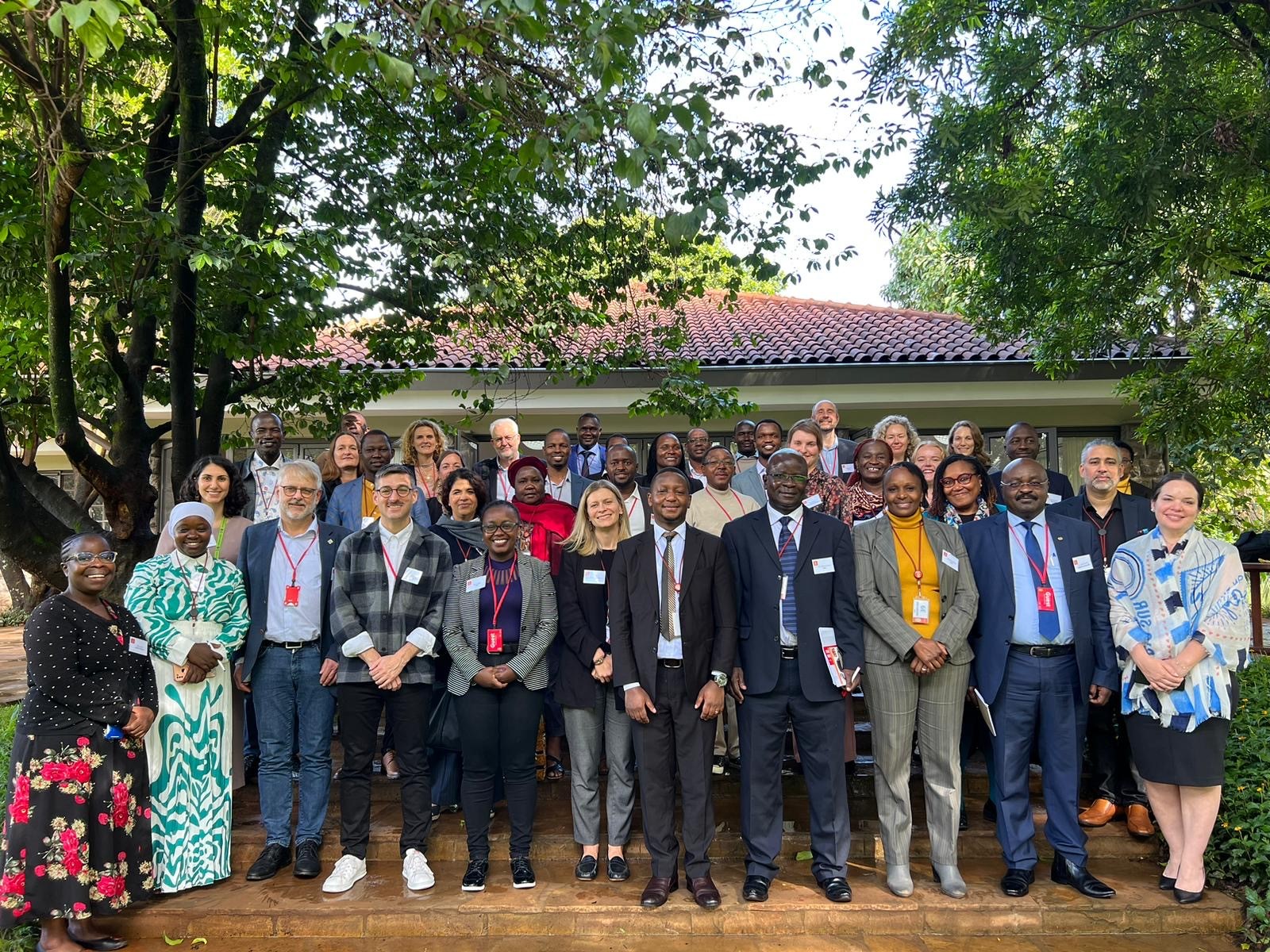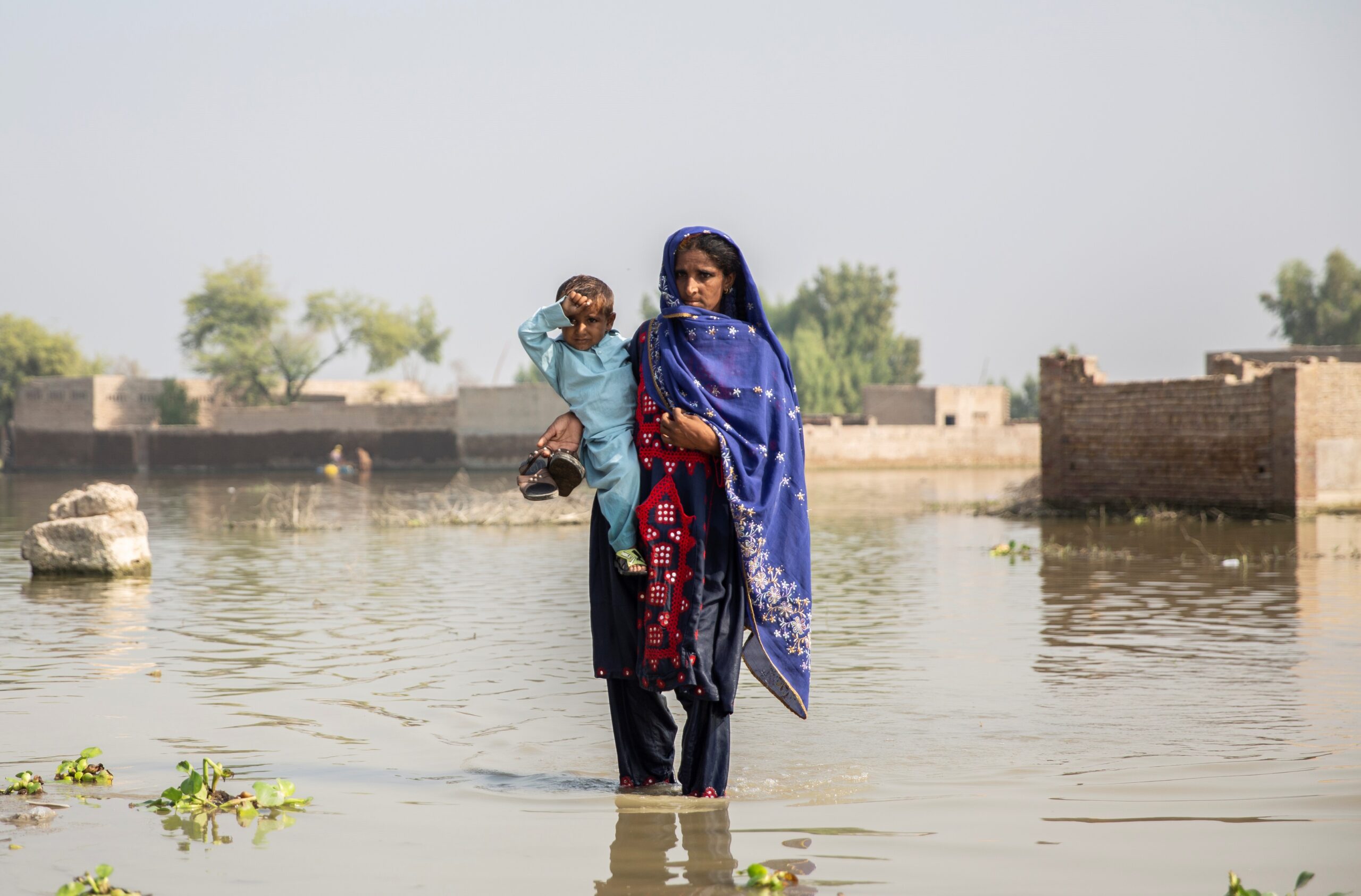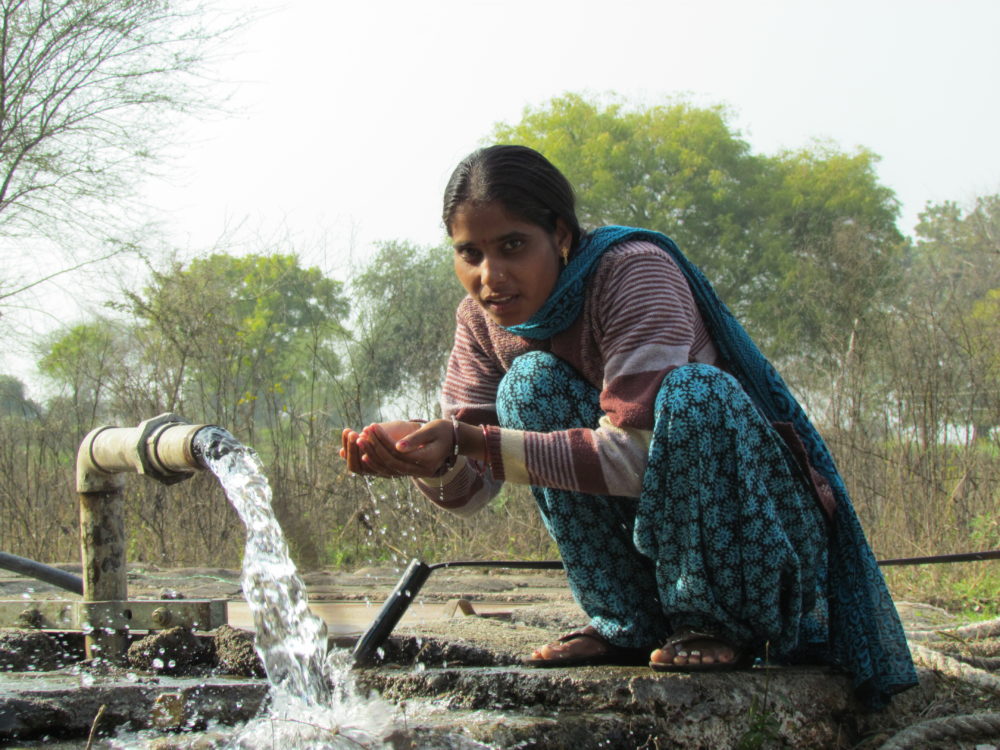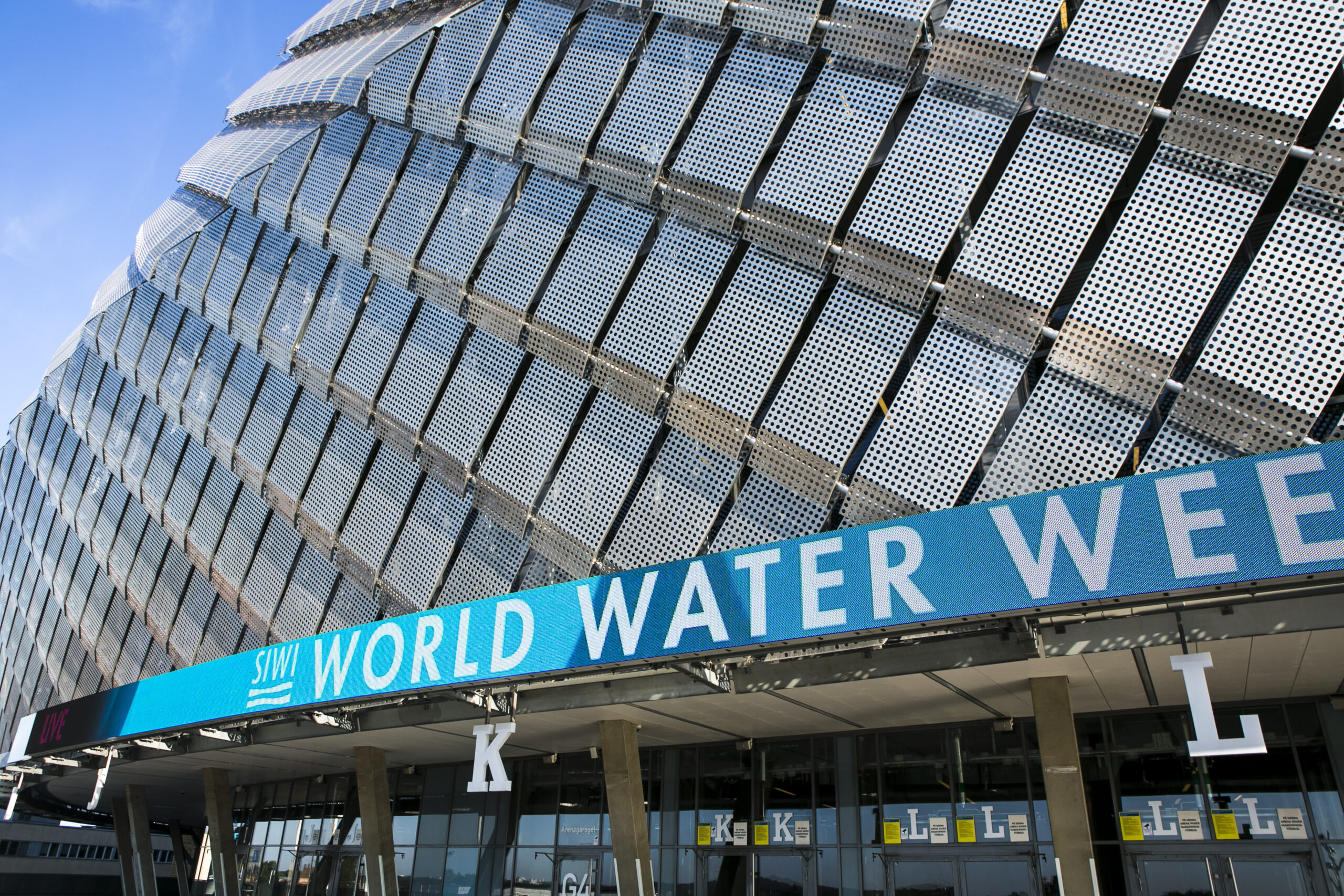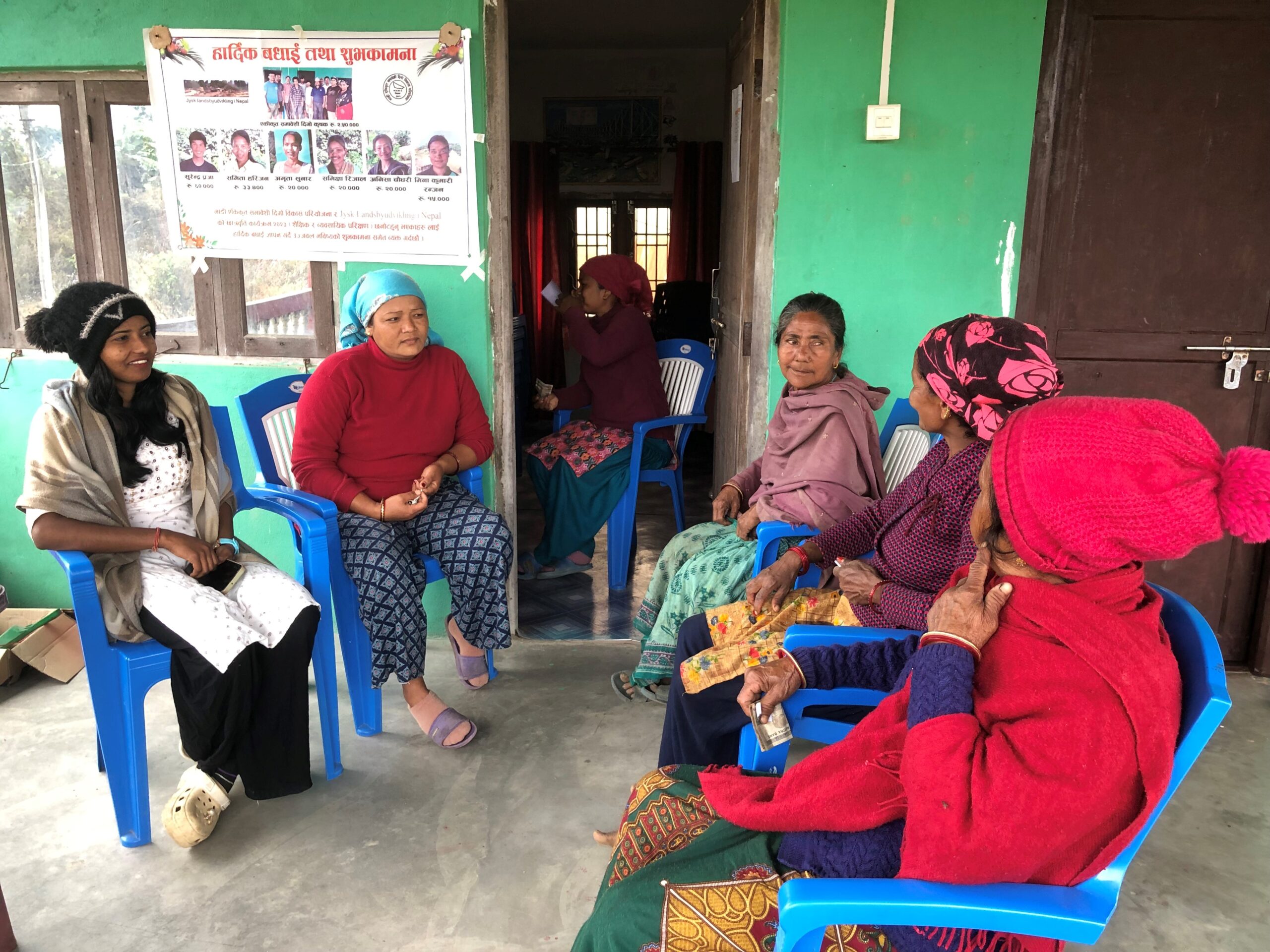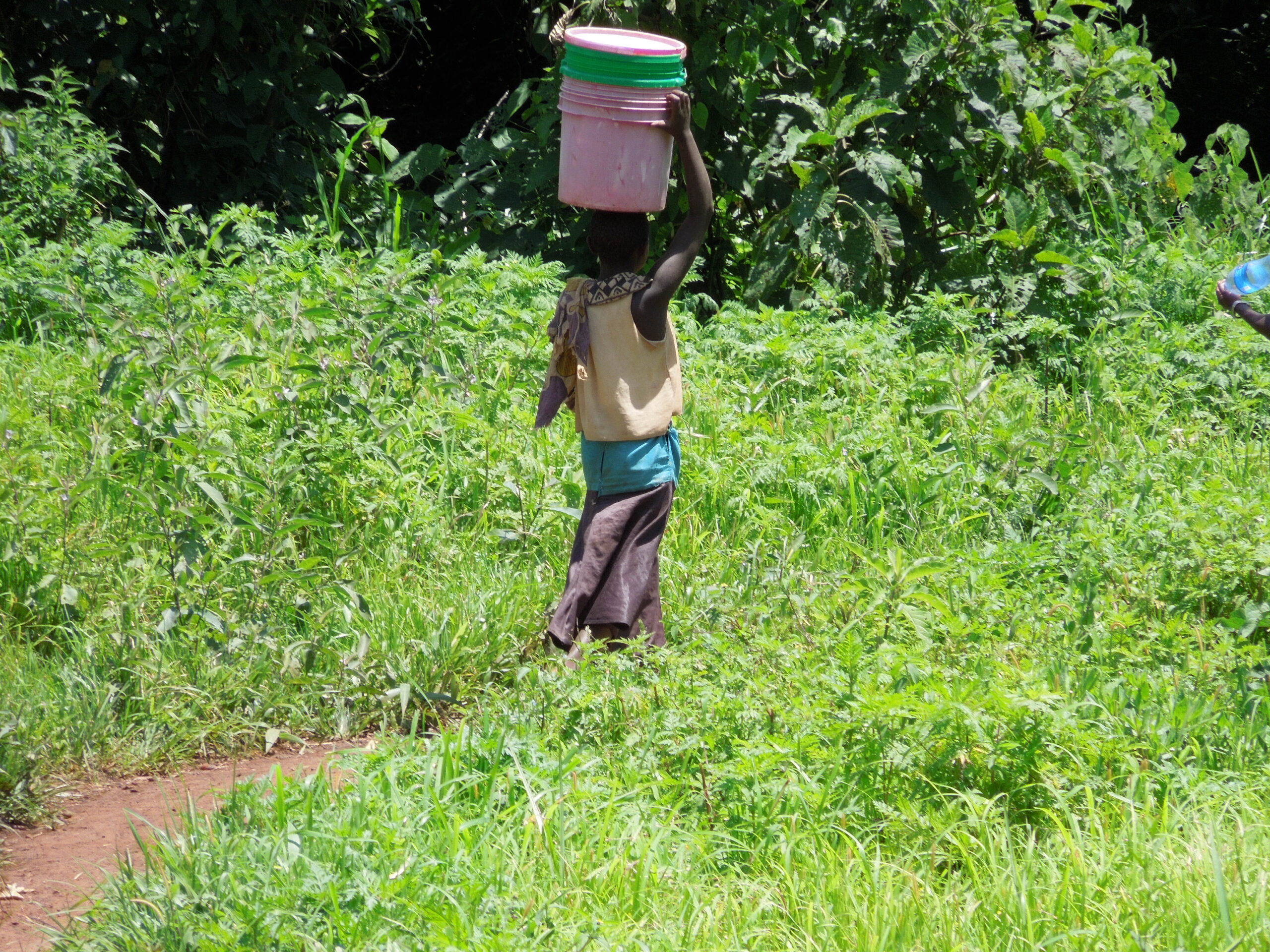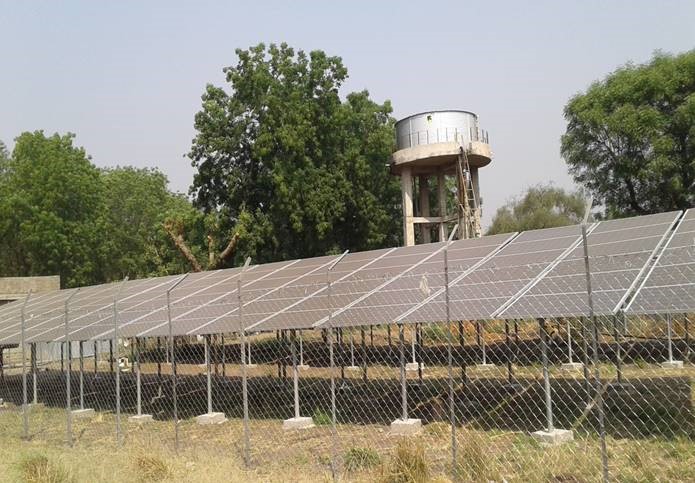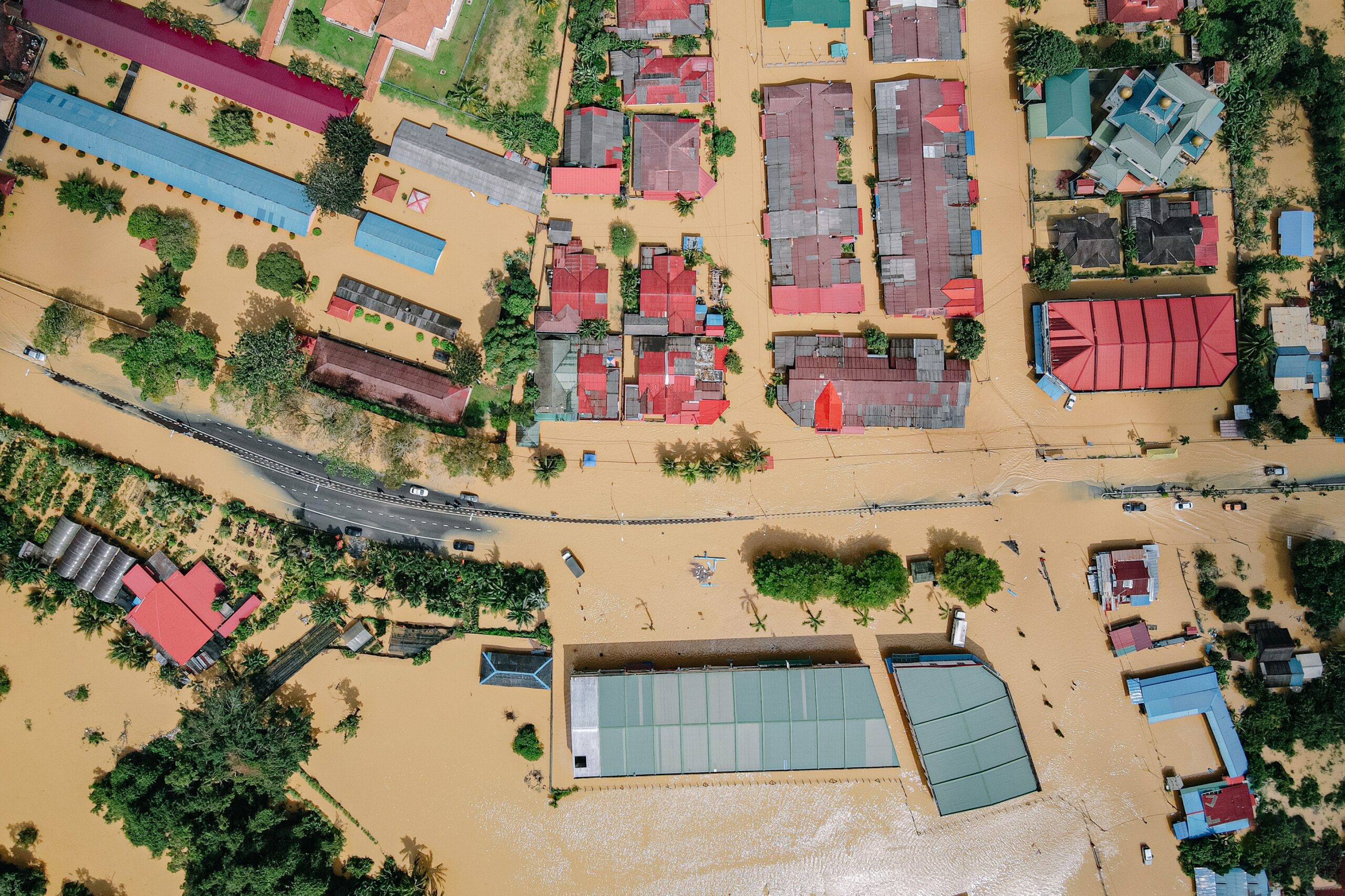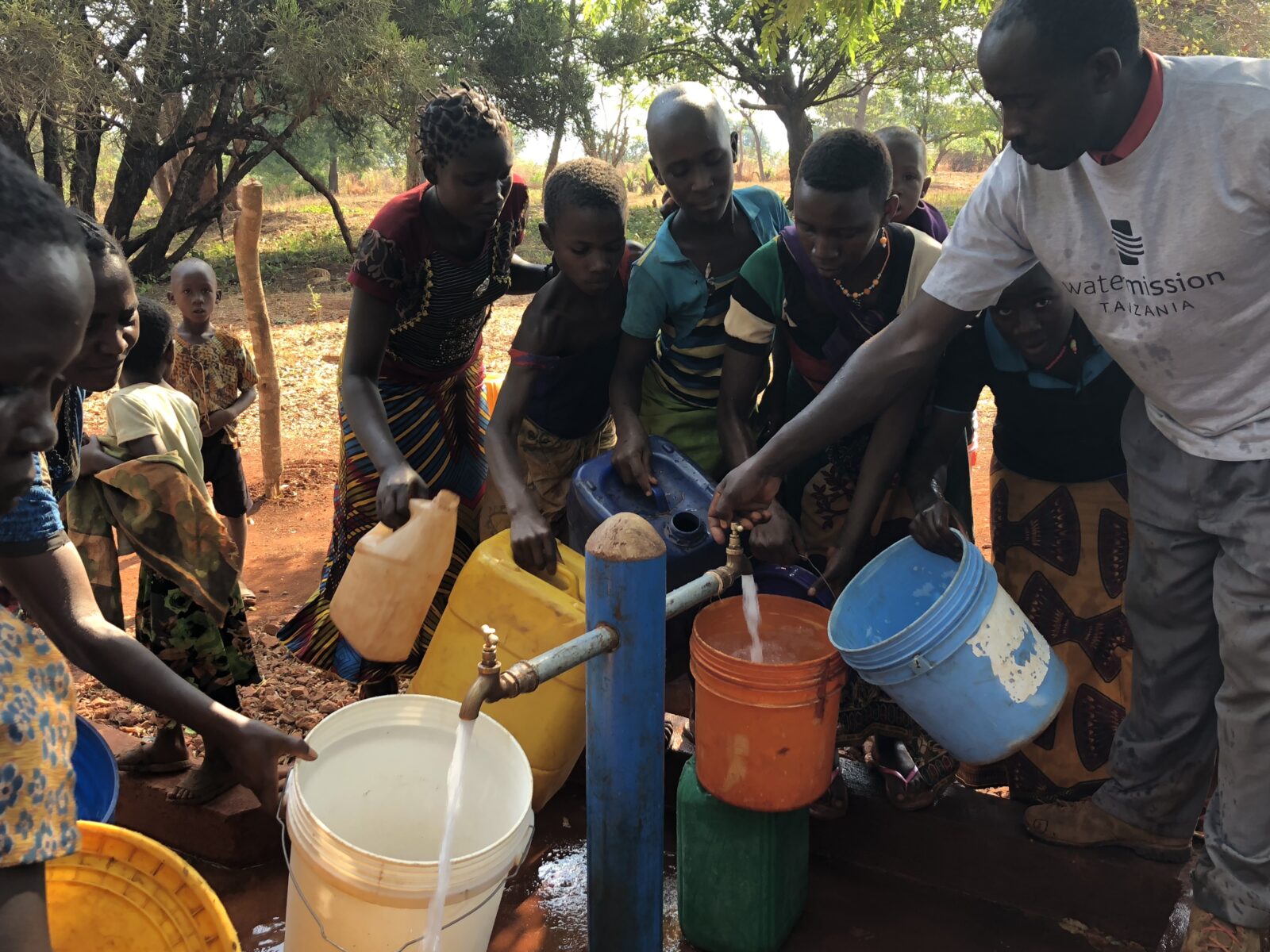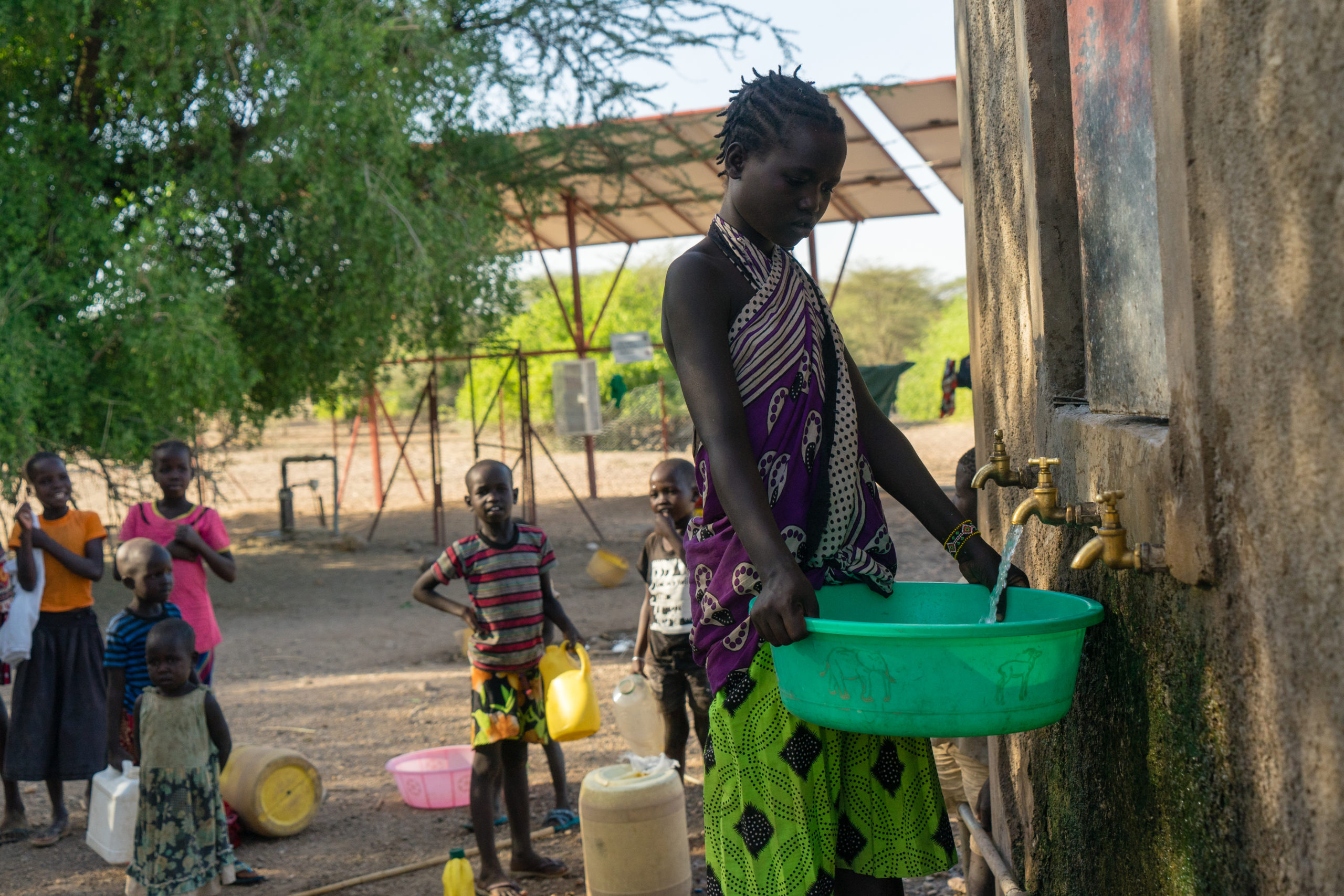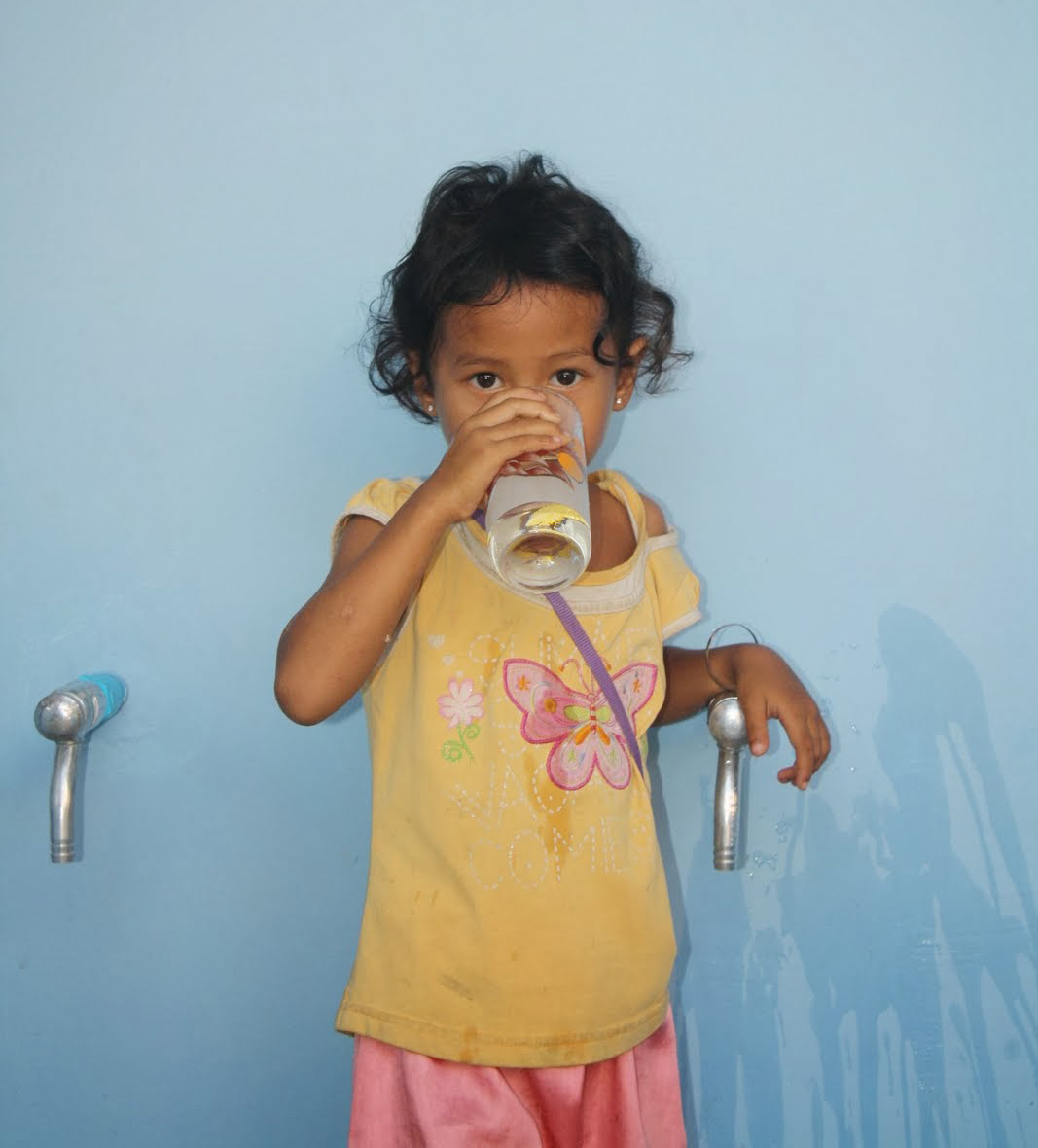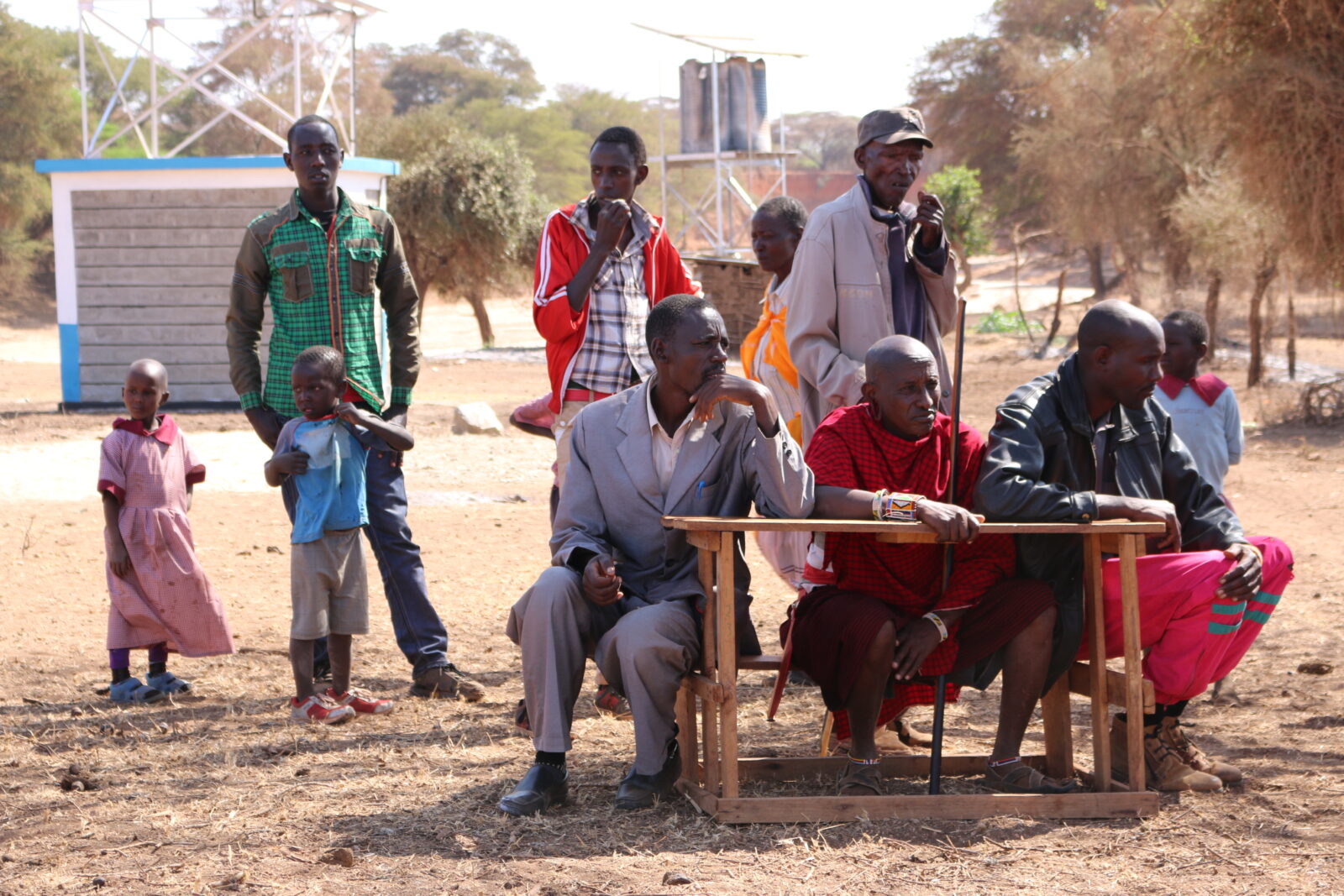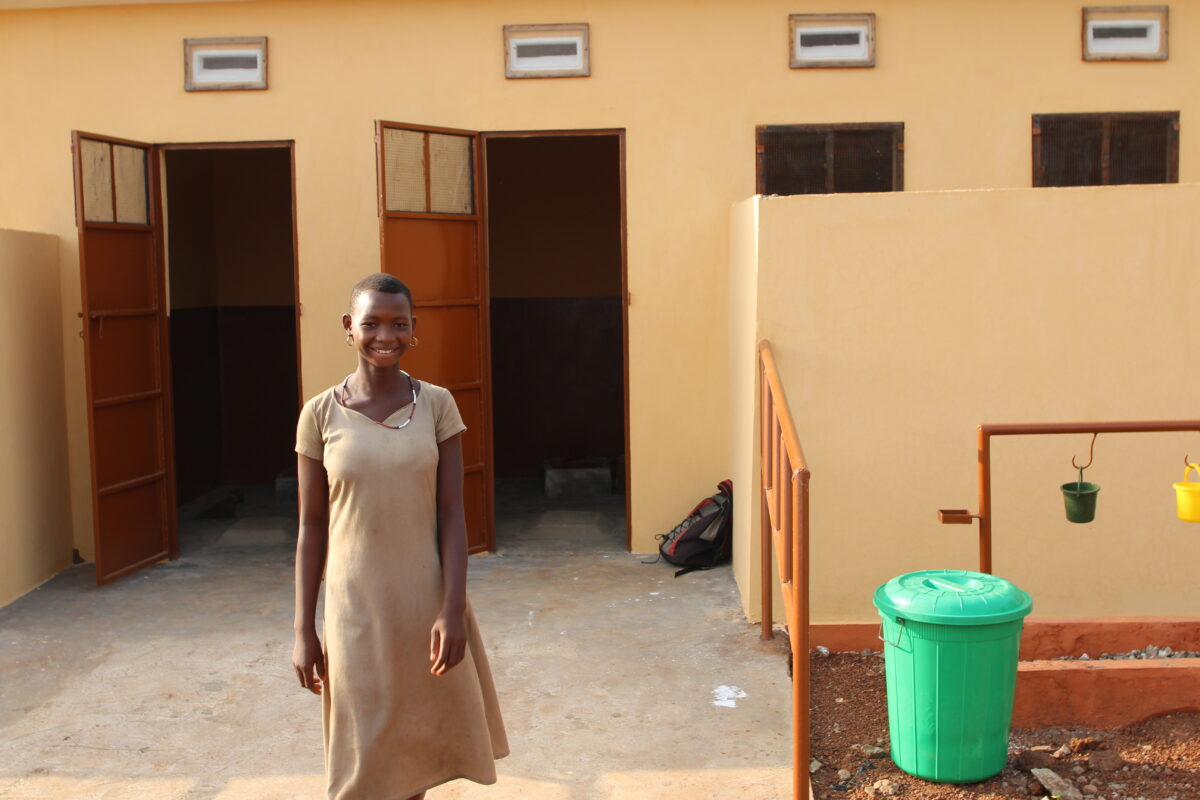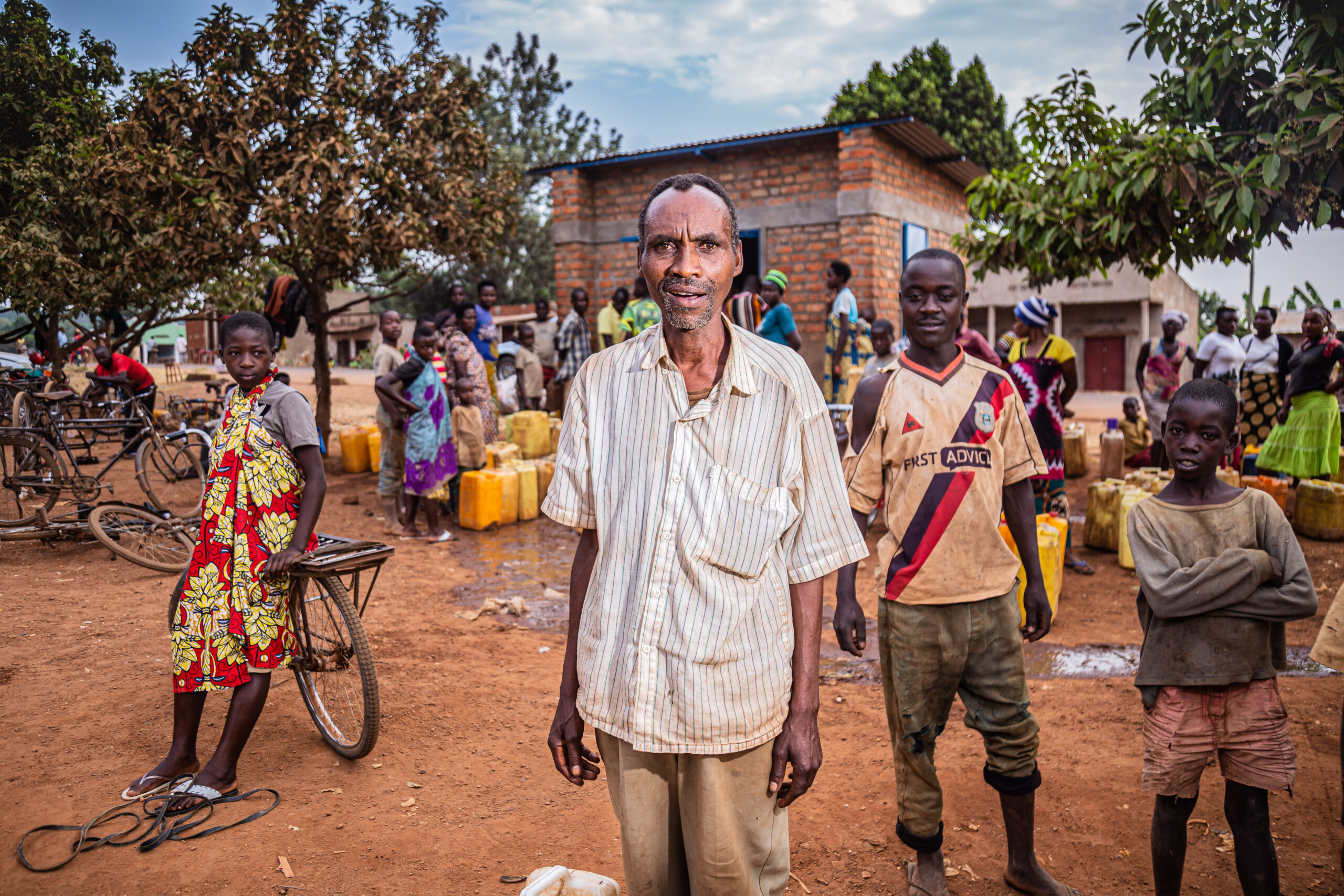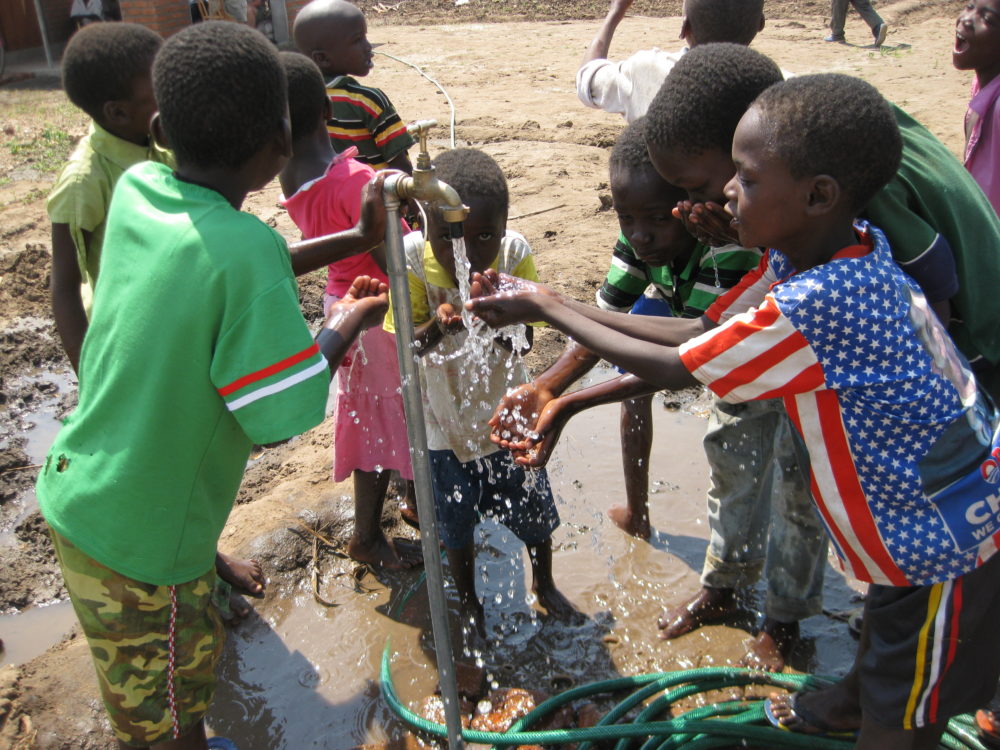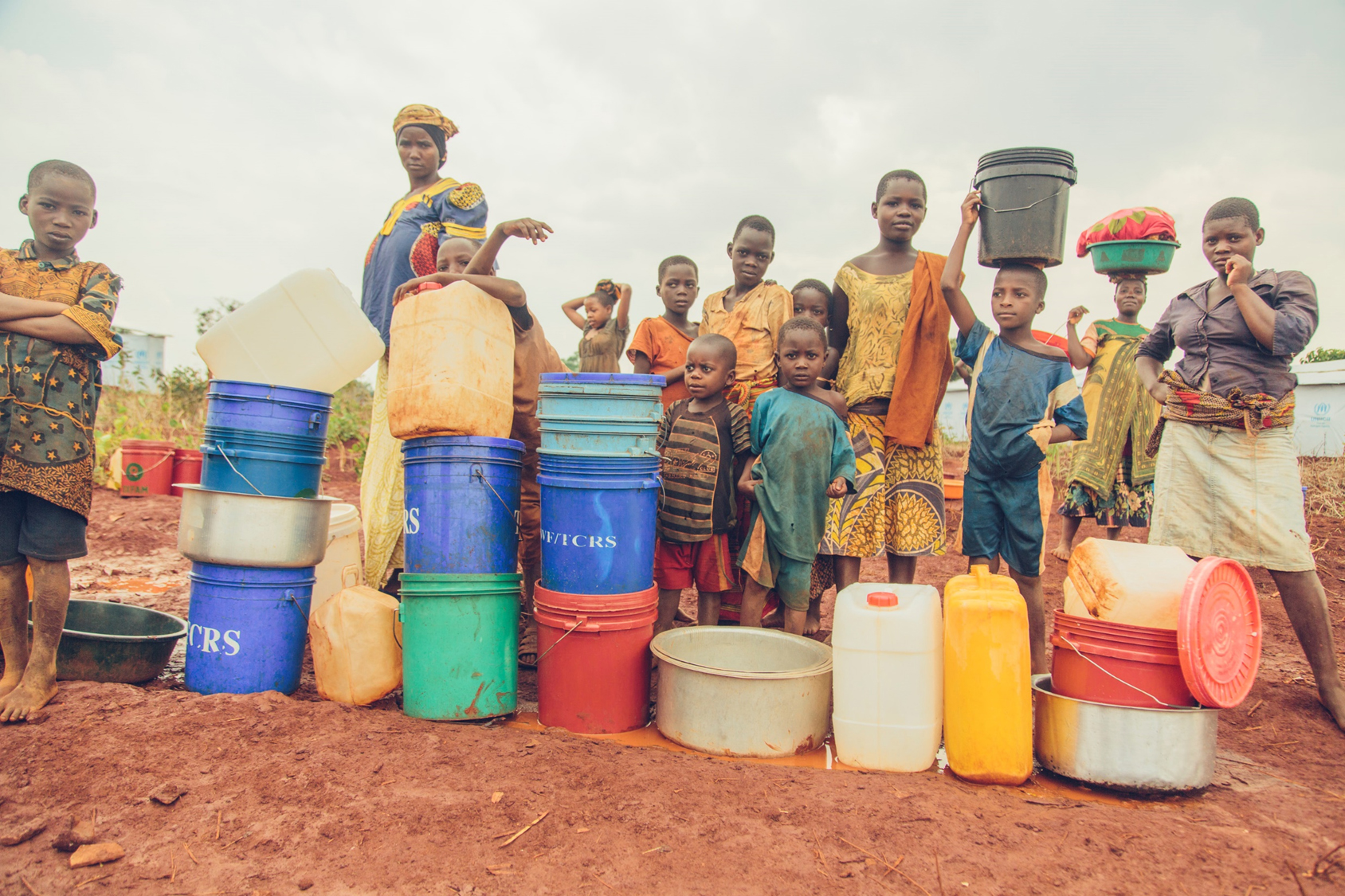Project Flow will substantially improve the way in which clean water is provided in refugee communities. Set up by UNHCR, the UN Refugee Agency, with generous funding from the Grundfos Foundation and the Danish and German governments, Project Flow will replace diesel-run pumps with solar-powered water pumps in six climate-vulnerable countries across Africa. This will benefit up to 800,000 refugees and host community members and drastically reduce CO2 emissions.
The Grundfos Foundation has been engaging in water access in refugee settings since 2016.
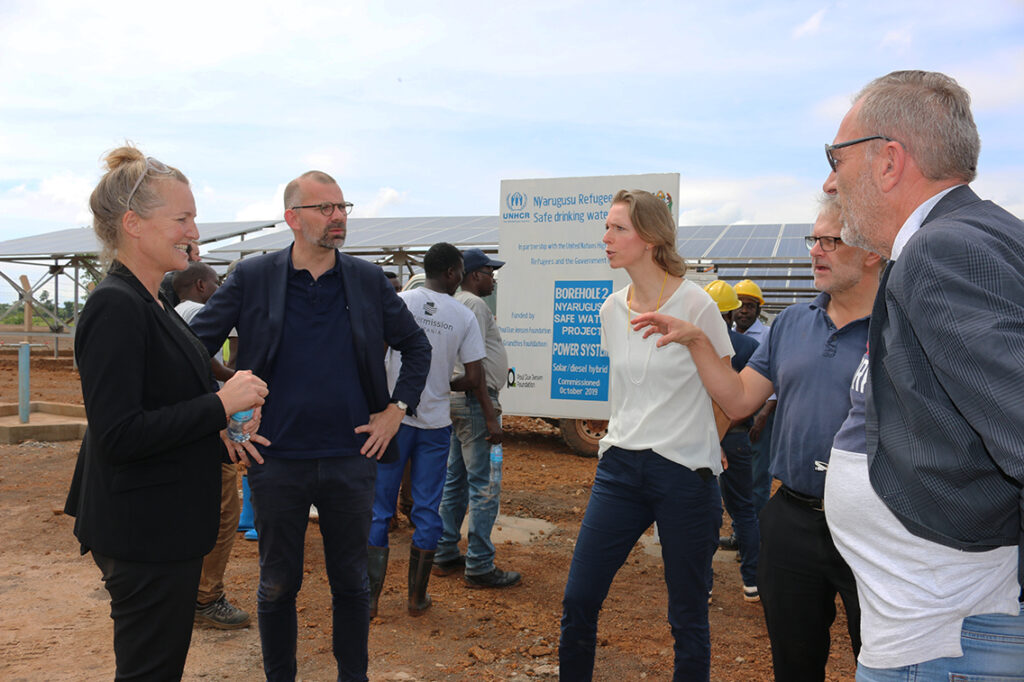
The Grundfos Foundation has been engaging in water access in refugee settings since 2016. Executive Director Kim Nøhr Skibsted (2nd from left) visited Nyarugusu Refugee Camp in October 2019 for the inauguration of Borehole 2. Photo: Grundfos Foundation
Solarizing diesel-powered boreholes will reduce both CO2 emissions and local air pollution levels. Approximately 180,000 tons CO2 emissions will be avoided over a 10-year period as a direct result of Project Flow.
A sustainable model
Due to the remote areas and fragile situations where many refugee communities are located, water delivery in these communities is largely powered by fossil fuels. This is neither environmentally nor economically sustainable. However, it can be challenging to switch to solar energy as solar-powered water pumps have high up-front capital expenditures.
As a revolving fund mechanism, Project Flow invests in the capital expenditure, design, installation and ongoing maintenance of solar systems for water pumps. Once installed, solar or hybrid systems generate yearly savings compared to those run on diesel. These savings will be re-invested in new clean energy systems, thereby multiplying the available funding and supporting multiple refugee communities over time to green their infrastructure.
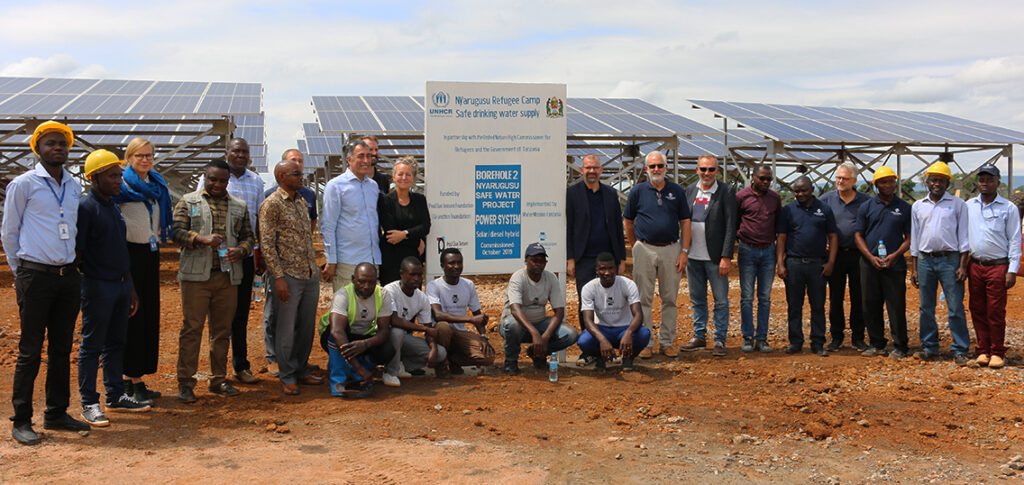
Inauguration of Borehole 2, Nyarugusu Refugee Camp, October 2019. The borehole serves 65,000 camp residents with up to 1,700 m³ of water per day. Photo: Grundfos Foundation
The first 10 million USD phase of Project Flow will solarize an estimated 100-160 water systems and boreholes. This will benefit refugees and host community members in climate-vulnerable countries across Africa, likely Ethiopia, Mauritania, Rwanda, Sudan, South Sudan and Zambia. Solarization of a small number of schools and health clinics will also be piloted as part of this first phase.
Project Flow is part of UNHCR’s Strategic Framework for Climate Action in response to the growing global climate emergency and is a key initiative under UNHCR’s Operational Strategy for Climate Resilience and Environmental Sustainability 2022-2025.



